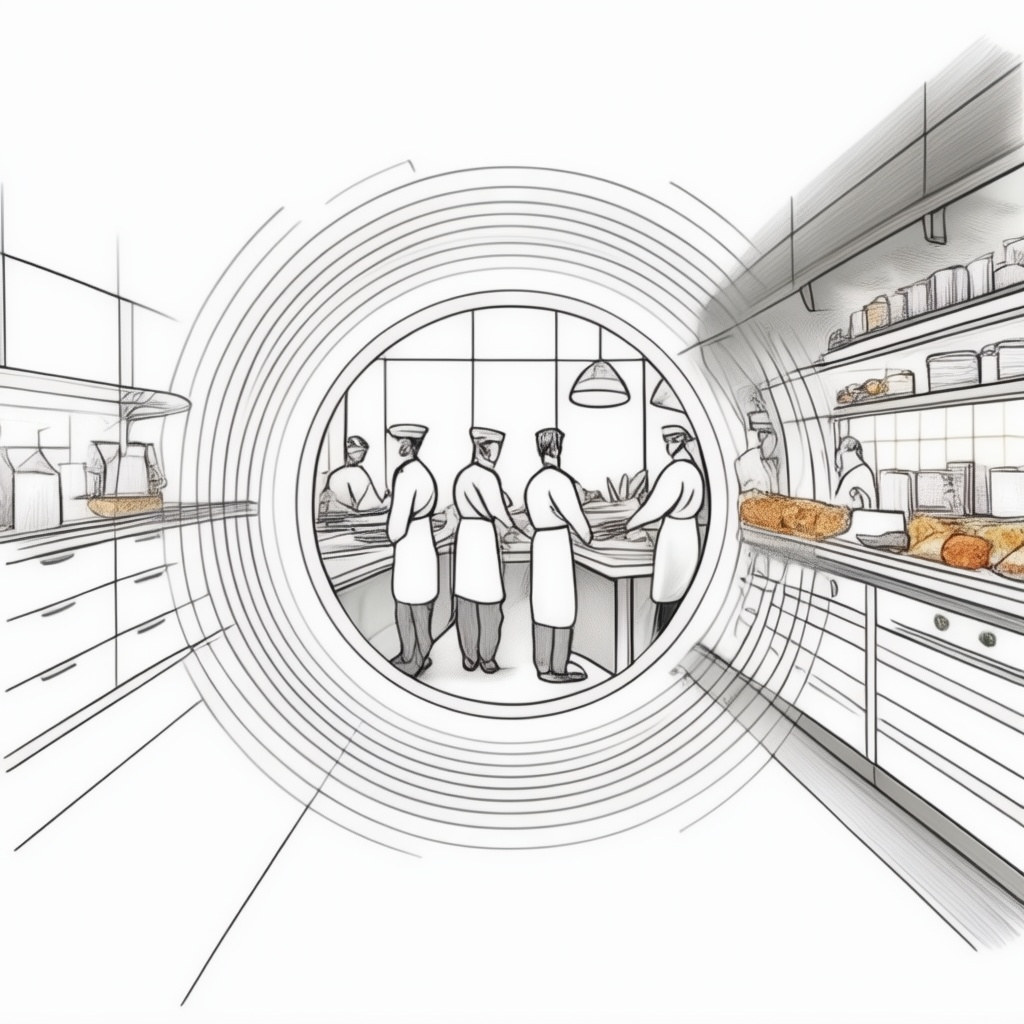 |
| AI Kitchen Management by OAII |
In today's fast-paced culinary industry, efficiency is key to success. From busy restaurant kitchens to bustling catering operations, chefs and kitchen managers are constantly seeking ways to streamline operations and maximize productivity. Enter AI kitchen management systems – powerful tools that leverage artificial intelligence to revolutionize the way kitchens operate.
AI kitchen management systems encompass a range of technologies and applications designed to improve efficiency, reduce waste, and enhance overall productivity in foodservice operations. From inventory management and recipe optimization to workflow automation and predictive analytics, these systems offer a comprehensive solution to the complex challenges facing modern kitchens.
In this article, we'll explore the various ways in which AI kitchen management systems are transforming the culinary landscape, from improving inventory control and reducing food waste to optimizing workflow and enhancing the dining experience for customers.
Inventory Management
One of the primary functions of AI kitchen management systems is inventory management. These systems use AI algorithms to track inventory levels in real-time, allowing chefs and kitchen managers to monitor stock levels, track ingredient usage, and predict when supplies need to be replenished.
By analyzing historical data and consumption patterns, AI kitchen management systems can generate accurate forecasts and optimize inventory levels to minimize waste and reduce costs. Additionally, these systems can automatically generate purchase orders and manage supplier relationships, streamlining the procurement process and ensuring that kitchens have the ingredients they need to operate efficiently.
Recipe Optimization
AI kitchen management systems can also optimize recipes to improve efficiency and reduce waste. By analyzing recipes and ingredient lists, these systems can identify opportunities to substitute ingredients, adjust portion sizes, or modify cooking techniques to maximize yield and minimize waste.
Furthermore, AI algorithms can analyze customer preferences and dining trends to develop new recipes or modify existing ones to better align with customer preferences. Whether it's creating healthier options, accommodating dietary restrictions, or capitalizing on seasonal ingredients, AI kitchen management systems enable chefs to create dishes that resonate with customers while optimizing kitchen operations.
Workflow Automation
 |
| Workflow Automation by OAII |
For example, AI kitchen management systems can automatically generate prep lists, assign tasks to kitchen staff, and prioritize orders based on factors such as cooking time, ingredient availability, and customer preferences. By automating routine tasks and optimizing workflows, these systems enable kitchens to operate more efficiently, reduce labor costs, and improve overall productivity.
Predictive Analytics
AI kitchen management systems leverage predictive analytics to anticipate demand, forecast sales, and optimize menu offerings. By analyzing historical data, market trends, and customer behavior, these systems can generate accurate sales forecasts and recommend menu items that are likely to be popular with customers.
Furthermore, AI algorithms can adjust pricing dynamically based on factors such as demand, time of day, and competitor pricing, maximizing revenue and profitability for foodservice operations. By harnessing the power of predictive analytics, AI kitchen management systems enable chefs and kitchen managers to make informed decisions and stay ahead of the competition.
Enhanced Customer Experience
Ultimately, AI kitchen management systems contribute to an enhanced dining experience for customers. By optimizing kitchen operations, reducing wait times, and ensuring consistent quality, these systems enable restaurants to deliver exceptional service and exceed customer expectations.
Additionally, AI algorithms can analyze customer feedback and dining preferences to personalize the dining experience and tailor menu offerings to individual tastes. Whether it's recommending new dishes, accommodating dietary restrictions, or remembering past orders, AI kitchen management systems enable restaurants to forge deeper connections with customers and build lasting loyalty.
Conclusion
AI kitchen management systems are transforming the culinary industry by improving efficiency, reducing waste, and enhancing the dining experience for customers. From inventory management and recipe optimization to workflow automation and predictive analytics, these systems offer a comprehensive solution to the complex challenges facing modern kitchens. By leveraging the power of artificial intelligence, chefs and kitchen managers can streamline operations, boost productivity, and deliver exceptional culinary experiences that keep customers coming back for more.
Comments